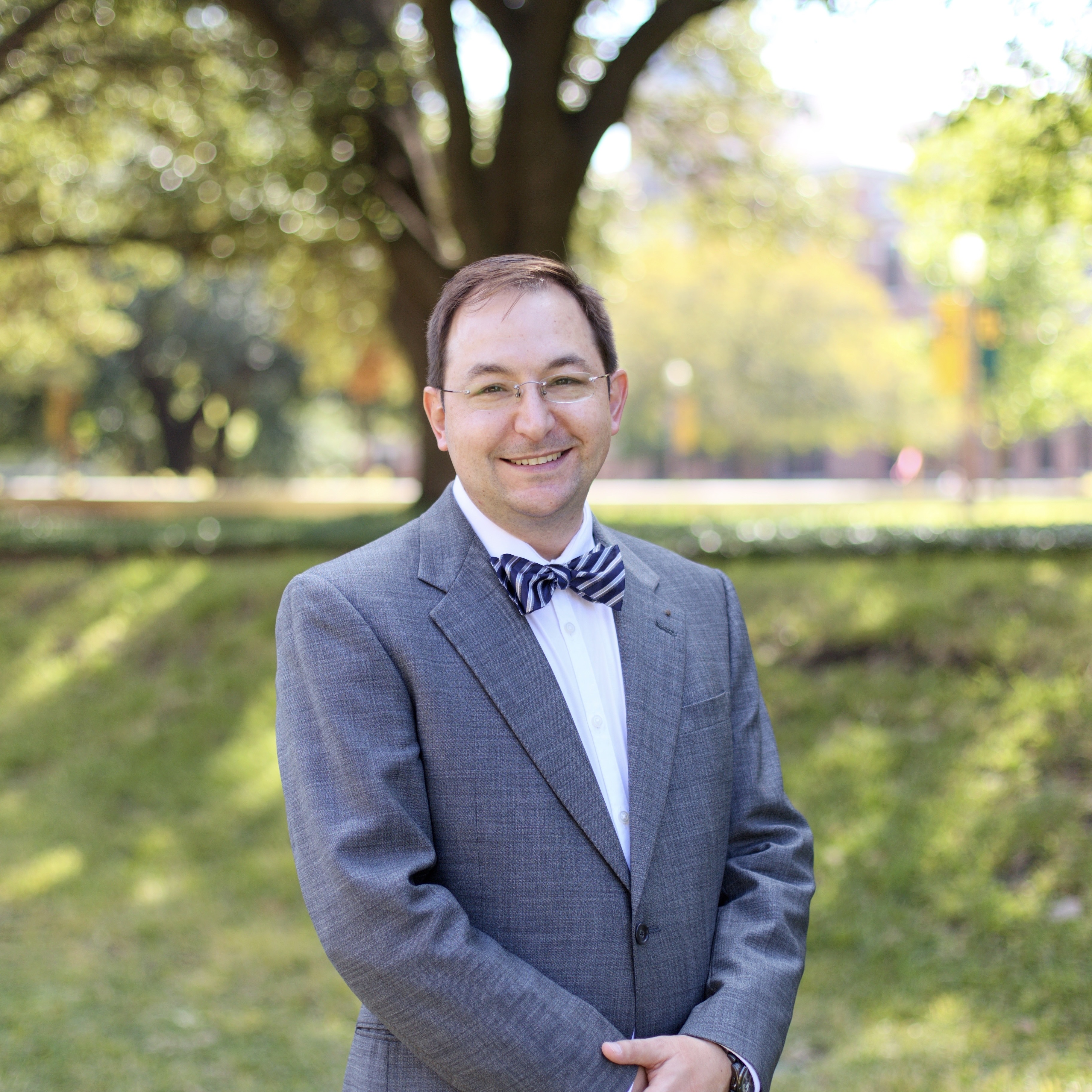Patrick Leech
PhD Candidate History *Fulbright Scholar

We recently spoke with Patrick Leech, a fourth-year Ph.D. Candidate in History and a recently named Fulbright Scholar, about his research concerning the Hungarian diaspora during the Cold War era. Patrick's work on church-state relations in Cold War Hungary has proven quite useful for understanding current debates about church-state relations in the United States. Community brought Patrick to Baylor, but the scholarship resources available to him and the opportunity for a Fulbright Scholarship have made Baylor a great place to study and do research that matters.
Why did you choose to attend Baylor for Graduate School?
The primary reason I chose Baylor is its community. Come back to school after a long hiatus, I knew the key would be the encouragement and support of faculty and colleagues, and that is where Baylor truly shines. I first experienced this during the application process, but once I campus I quickly found that sense of community to exude from faculty, staff, and students across campus.
What are your research interests?
Broadly, I place Hungary within a Global Cold War framework to show patterns of interactions and unexpected effects. As such, I have looked at several aspects including church-state relations in Cold War Hungary, the complex relationship between immigration and civil rights legislation in the US Congress during the 1950s, and how events in Eastern Europe fractured the Communist Party in the United States.
What opportunities or implications stem from your research?
Aside from contributing to scholarly discussions in these fields, my research offers insights for policymakers, activists, and religious leaders addressing topics including immigration, foreign policy, and the intersections of policy and civil society. My work on church-state relations in Cold War Hungary has proven quite useful for understanding current debates about church-state relations in the United States. Similarly, my research on Hungarian refugee resettlement provides insights into understanding the development of a global refugee resettlement network and US immigration policies.
What research excites you right now?
Partially due to a prior career in technology, I am particularly excited about digital humanities methodologies. Currently, I am using these techniques to analyze Hungarian-language diaspora newspapers as they describe the response to the 1956 Hungarian revolt and refugee crises. Additionally, I am part of a Hungary-based research team working to document the 200,000 Hungarians who fled their homeland in 1956 and trace where they were resettled.
How does Baylor help you achieve your research?
I am a frequent user of the library's Interlibrary Loan system as well as it's training related to digital humanities. Additionally, the Keston Center for Religion, Politics, and Society is an excellent archive that was critical to my research on Hungarian society and church-state relations.
If you are working on a thesis or dissertation, briefly describe your topic.
My dissertation explores how members of the Hungarian diaspora in the United States participated in Cold War politics at the local, state, and national levels and deployed Cold War rhetoric to garner support for policies that benefited the community and its members.
Featured Fellowships and Publications
- Dept. of State, Program for Research and Training on Eastern Europe and Eurasia (Title VIII) Fellowship, 2022
-
Baylor University Graduate School, Travel Grant, 2022
-
Baylor University Library, Fundamentals of Data Research Fellowship, 2020
Leech, P. "Eastern Europe, Humanitarian Parole, and US Civil Rights," NYU Jordan Center for the Advanced Study of Russia, blog, Sept. 29, 2022
Leech, P. "The Growing Crisis of Anomie in the United States: Learning from Hungary's Cold War Past," The Anxious Bench, blog, Aug. 29, 2022
Leech, P. "The Unhappiest Barrack in the Soviet Bloc: Church-State Relations in Hungary," in Speaking for Truth: A Festschrift for Rev. Michael Bourdeaux, Michael Long, Julie deGraffenried, & Xenia Dennen, eds., (TBD).